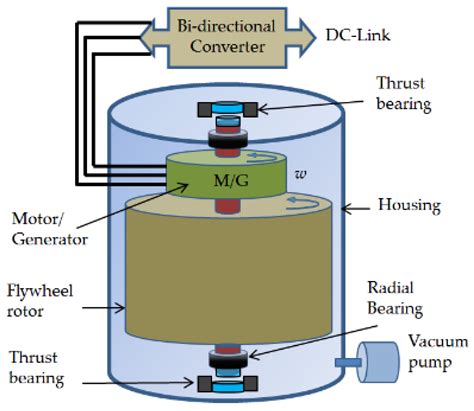What is Free Energy?
Free energy, also known as “over-unity” energy, refers to the concept of creating a system that generates more energy than it consumes. In other words, it is the idea of producing energy without any external input or fuel source. This concept challenges the fundamental laws of thermodynamics, which state that energy cannot be created or destroyed, only converted from one form to another.
The Allure of Free Energy
The idea of free energy is attractive for several reasons:
-
Sustainability: If free energy were possible, it would provide an endless supply of clean energy, reducing our reliance on fossil fuels and minimizing environmental impact.
-
Cost-effectiveness: Free energy systems would eliminate the need for expensive fuel sources, making energy more affordable and accessible to everyone.
-
Independence: With free energy, individuals and communities could become self-sufficient, generating their own power without relying on utility companies or external sources.
The Principles Behind Free Energy
To understand the concept of free energy, it is essential to examine the fundamental principles of energy and thermodynamics.
The First Law of Thermodynamics
The first law of thermodynamics, also known as the law of conservation of energy, states that energy cannot be created or destroyed, only converted from one form to another. In a closed system, the total amount of energy remains constant. This law poses a significant challenge to the idea of free energy, as it suggests that generating energy without any input is impossible.
The Second Law of Thermodynamics
The second law of thermodynamics deals with the direction of energy flow and the concept of entropy. It states that in a closed system, entropy (a measure of disorder) always increases over time. This law implies that energy tends to disperse and become less useful as it is converted from one form to another. In the context of free energy, the second law suggests that any system claiming to generate energy without input would inevitably lose efficiency and eventually stop working.
Examining Free Energy Claims
Throughout history, there have been numerous claims of devices and systems that allegedly produce free energy. However, upon closer examination, these claims often fail to hold up to scientific scrutiny.
Perpetual Motion Machines
Perpetual motion machines are hypothetical devices that can operate indefinitely without any external energy input. These machines are divided into two categories:
- First Kind: Machines that produce work without any energy input.
- Second Kind: Machines that convert thermal energy into mechanical work with 100% efficiency.
Both types of perpetual motion machines violate the laws of thermodynamics and are considered impossible.
Over-Unity Generators
Over-unity generators are devices claimed to produce more energy than they consume. These devices often rely on unconventional or poorly understood principles, such as magnetic energy, zero-point energy, or cold fusion. However, no over-unity generator has been independently verified or proven to work as claimed.

The Limitations of Free Energy
Despite the allure of free energy, there are several reasons why it remains an elusive concept.
Violation of Physical Laws
As mentioned earlier, the idea of free energy contradicts the fundamental laws of thermodynamics. Creating energy without any input or achieving 100% efficiency in energy conversion is not possible according to our current understanding of physics.
Lack of Scientific Evidence
To date, there has been no credible scientific evidence to support the existence of free energy devices. Claims of over-unity generators or perpetual motion machines have consistently failed to withstand rigorous testing and peer review.
Energy Conversion Losses
In any energy conversion process, there are inherent losses due to factors such as friction, heat dissipation, and electrical resistance. These losses make it impossible to achieve 100% efficiency in energy conversion, let alone generate more energy than is put in.
Alternative Energy Solutions
While the idea of free energy remains a topic of fascination, it is important to focus on realistic and proven alternative energy solutions.
Renewable Energy Sources
Renewable energy sources, such as solar, wind, hydro, and geothermal power, offer sustainable and environmentally friendly alternatives to fossil fuels. These technologies harness naturally occurring energy and convert it into usable forms.
| Energy Source | Advantages | Disadvantages |
|---|---|---|
| Solar | Abundant, clean, low maintenance | Intermittent, storage challenges |
| Wind | Clean, renewable, scalable | Intermittent, noise, visual impact |
| Hydro | Reliable, long lifespan, energy storage | Environmental impact, location-dependent |
| Geothermal | Consistent, low emissions, baseload power | Location-dependent, high upfront costs |
Energy Efficiency and Conservation
Rather than seeking free energy, a more practical approach is to focus on energy efficiency and conservation. By reducing energy waste and optimizing energy use, we can minimize our energy consumption and extend the life of our existing resources.
Some effective strategies for energy efficiency and conservation include:
- Using energy-efficient appliances and lighting
- Improving insulation and weatherization in buildings
- Adopting smart energy management systems
- Encouraging sustainable transportation options
- Promoting public awareness and behavior change
Frequently Asked Questions (FAQ)
-
Q: Is it possible to create a device that generates more energy than it consumes?
A: No, according to the laws of thermodynamics, it is not possible to create a device that generates more energy than it consumes. Energy cannot be created or destroyed, only converted from one form to another. -
Q: Why do people continue to pursue the idea of free energy despite the scientific evidence against it?
A: The allure of free energy stems from the desire for a sustainable, cost-effective, and independent energy source. However, many people may not fully understand the fundamental principles of energy and thermodynamics that make free energy impossible. -
Q: Are there any credible examples of free energy devices that have been proven to work?
A: To date, there have been no credible examples of free energy devices that have been independently verified and proven to work as claimed. All alleged free energy devices have failed to withstand scientific scrutiny. -
Q: What are some realistic alternatives to free energy?
A: Realistic alternatives to free energy include renewable energy sources such as solar, wind, hydro, and geothermal power. Additionally, focusing on energy efficiency and conservation can help reduce our energy consumption and extend the life of our existing resources. -
Q: Will science ever find a way to make free energy possible?
A: Based on our current understanding of physics and the laws of thermodynamics, it is highly unlikely that science will find a way to make free energy possible. The fundamental principles that govern energy make it impossible to create energy without any input or to achieve 100% efficiency in energy conversion.
Conclusion
The idea of free energy, while appealing, remains a topic of fascination rather than a realistic solution to our energy needs. The fundamental laws of thermodynamics and the lack of credible scientific evidence make it highly unlikely that we will ever be able to create circuits that generate energy without any external input.
Instead of pursuing the elusive concept of free energy, it is crucial to focus on proven alternative energy solutions, such as renewable energy sources and energy efficiency measures. By harnessing the power of the sun, wind, water, and earth, and by optimizing our energy use, we can work towards a more sustainable and environmentally friendly future.
As we continue to explore and develop new energy technologies, it is essential to remain grounded in scientific principles and to approach claims of free energy with a critical and skeptical mindset. By doing so, we can make informed decisions and invest in realistic solutions that will help us meet our energy needs while protecting our planet for generations to come.






Leave a Reply